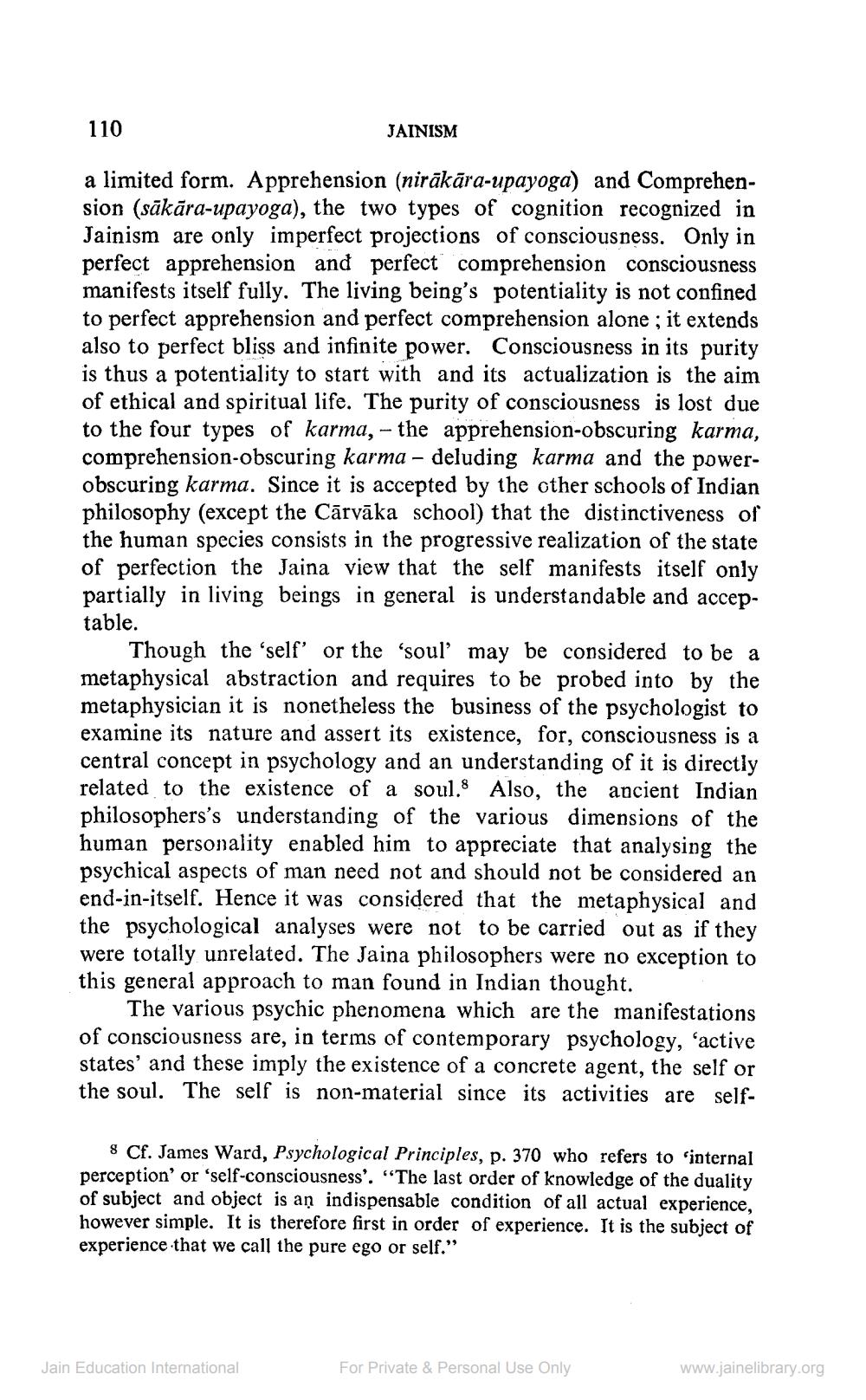________________
110
JAINISM
a limited form. Apprehension (nirākāra-upayoga) and Comprehension (sākāra-upayoga), the two types of cognition recognized in Jainism are only imperfect projections of consciousness. Only in perfect apprehension and perfect comprehension consciousness manifests itself fully. The living being's potentiality is not confined to perfect apprehension and perfect comprehension alone ; it extends also to perfect bliss and infinite power. Consciousness in its purity is thus a potentiality to start with and its actualization is the aim of ethical and spiritual life. The purity of consciousness is lost due to the four types of karma, - the apprehension-obscuring karma, comprehension-obscuring karma - deluding karma and the powerobscuring karma. Since it is accepted by the other schools of Indian philosophy (except the Cārvāka school) that the distinctiveness of the human species consists in the progressive realization of the state of perfection the Jaina view that the self manifests itself only partially in living beings in general is understandable and acceptable.
Though the 'self' or the 'soul may be considered to be a metaphysical abstraction and requires to be probed into by the metaphysician it is nonetheless the business of the psychologist to examine its nature and assert its existence, for, consciousness is a central concept in psychology and an understanding of it is directly related to the existence of a soul. Also, the ancient Indian philosophers's understanding of the various dimensions of the human personality enabled him to appreciate that analysing the psychical aspects of man need not and should not be considered an end-in-itself. Hence it was considered that the metaphysical and the psychological analyses were not to be carried out as if they were totally unrelated. The Jaina philosophers were no exception to this general approach to man found in Indian thought.
The various psychic phenomena which are the manifestations of consciousness are, in terms of contemporary psychology, 'active states' and these imply the existence of a concrete agent, the self or the soul. The self is non-material since its activities are self
8 Cf. James Ward, Psychological Principles, p. 370 who refers to 'internal perception' or 'self-consciousness'. "The last order of knowledge of the duality of subject and object is an indispensable condition of all actual experience, however simple. It is therefore first in order of experience. It is the subject of experience that we call the pure ego or self."
Jain Education International
For Private & Personal Use Only
www.jainelibrary.org




